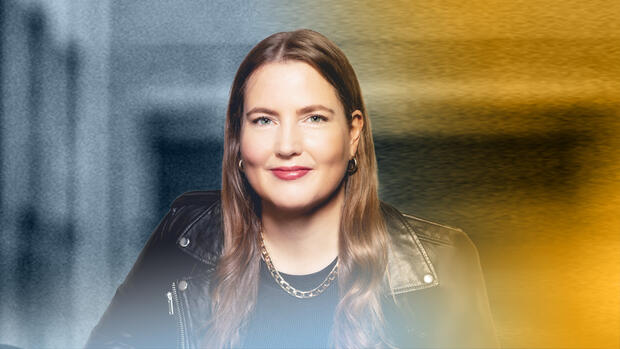The 38-year-old studied global management and marketing and lives in Berlin and in the Rhön.
Dusseldorf Deguma-Schütz is a machine builder in the 5,000-inhabitant village of Geisa in Thuringia – just 50 people work there in the province. Sales are in the single-digit million range. This makes the company one of hundreds of thousands of other companies of this size class in Germany.
But Deguma-Schütz is special, and that mainly has to do with the boss, or rather with the bosses. Viktoria Schütz has been running the business since 2019 – in dual leadership with another woman, Daniela Dingfelder.
The 38-year-old is the daughter of Winfried and Barbara Schütz, who once founded the company. In the new episode of Handelsblatt Rethink Work, she talks about how bumpy her path to her parents’ company was – but also about the good things that come out of it when you just let the employees do their thing.
She talks about her first attempt after graduation to join Deguma-Schütz and why it failed. “It didn’t work out with my father,” says Schütz. “My father preferred to decide things on his own and not coordinate things.” She also struggled with returning from Berlin to her native province.
After the death of her mother, she made a second attempt, but on the condition that her father retire. “I then said to him: It’s about my life and I have to see where I stay.” Her father was attacked, says Schütz, but then handed over the company to her after a period of reflection. He is still on the management board, but that is “purely formal for emergencies”. Their relationship has never been as good as it is today.
At the start of the co-management with Daniela Dingfelder, there were quite a few tips, Schütz recalls. According to the motto: Two women from outside the industry in mechanical engineering, whether they could do it. But that quickly subsided.
Their approach as bosses: away from rigid hierarchies and banging on the table towards teamwork, personal responsibility and trying things out. An example of this is the four-day week as part of a research project at the TU Ilmenau. You would notice that there was no time, especially with all the public holidays. But Schütz also says: “We are seeing a sharp decrease in sick days.”
More: Listen to the previous episode of Rethink Work here
